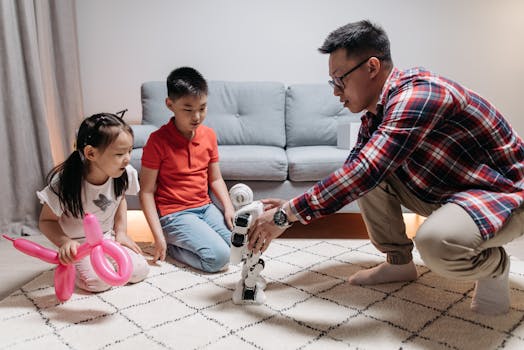
The Future of Education: What 2025 Holds
Focus Keyword: Future of Education
The future of education is an exciting and rapidly evolving field, with new technologies and innovations emerging every year. As we approach 2025, it’s essential to consider what the future holds for education and how we can prepare for the changes that are coming. In this article, we’ll explore the trends and predictions for the future of education in 2025 and beyond.
Trends in Education Technology
Education technology, also known as EdTech, is playing an increasingly important role in the future of education. Some of the key trends in EdTech include:
- Artificial Intelligence (AI): AI is being used to personalize learning, automate grading, and provide real-time feedback to students.
- Virtual and Augmented Reality (VR/AR): VR/AR is being used to create immersive and interactive learning experiences that simulate real-world environments.
- Online and Mobile Learning: Online and mobile learning platforms are making it possible for students to access educational content from anywhere, at any time.
- Big Data and Analytics: Big data and analytics are being used to track student progress, identify areas where students need extra support, and provide insights for teachers and administrators.
Personalized Learning
Personalized learning is an approach to education that tailors the learning experience to each individual student’s needs, abilities, and learning style. Some of the key benefits of personalized learning include:
- Improved Student Outcomes: Personalized learning has been shown to improve student outcomes, including increased academic achievement and better retention rates.
- Increased Student Engagement: Personalized learning can help increase student engagement and motivation, as students are more likely to be interested in learning that is relevant and meaningful to them.
- Better Teacher-Student Relationships: Personalized learning can help build better relationships between teachers and students, as teachers are able to provide more individualized support and feedback.
Innovative Teaching Methods
Innovative teaching methods are being used to make learning more engaging, interactive, and effective. Some of the key innovative teaching methods include:
- Flipped Classrooms: Flipped classrooms involve reversing the traditional lecture-homework format, where students learn at home and work on projects and activities in the classroom.
- Project-Based Learning: Project-based learning involves assigning students real-world projects that require them to apply what they have learned in a practical way.
- Competency-Based Progression: Competency-based progression involves allowing students to progress through the curriculum at their own pace, based on their demonstration of mastery of specific skills and knowledge.
Conclusion
The future of education in 2025 is exciting and full of possibilities. With advancements in technology, personalized learning, and innovative teaching methods, we can create a more effective, efficient, and engaging education system that prepares students for success in the 21st century.






